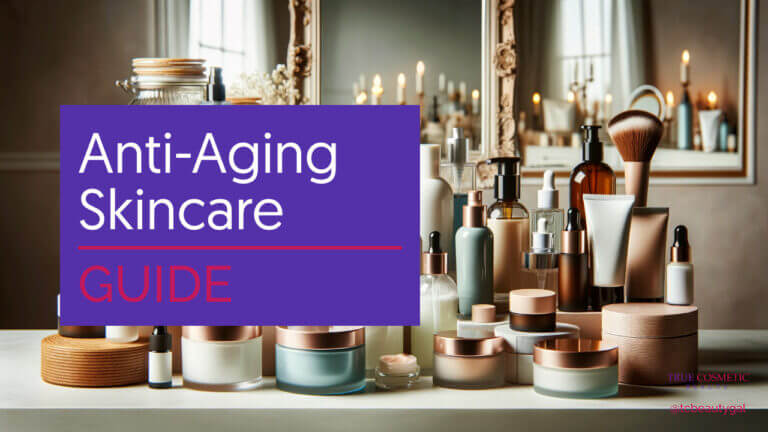Korean Sunscreens for Sensitive Skin – Ingredients and Selection
Welcome to our comprehensive guide on finding the best Korean sunscreens for sensitive skin. When it comes to protecting your skin from harmful UV rays, it’s crucial to choose a sunscreen that not only provides adequate protection but also doesn’t irritate your skin. With the overwhelming number of options available, it can be daunting to know which ingredient to avoid or look for. In this guide, we will walk you through the essential ingredients to seek out and which to steer clear of, helping you make an informed decision for your skincare routine.
Key Takeaways:
- Choosing the right sunscreen: Selecting a Korean sunscreen for sensitive skin involves opt for a formula that is free of common irritants like alcohol, fragrance, and artificial dyes.
- Physical vs. chemical filters: Look for sunscreens with physical filters like titanium dioxide or zinc oxide instead of chemical UV filters, as these are less likely to cause irritation.
- Calming ingredients: Seek out sunscreen with soothing and calming ingredients such as centella asiatica, aloe vera, and green tea extract to help reduce redness and inflammation.
- Hydrating and moisturizing: Opt for sunscreens that contain hydrating and moisturizing ingredients like hyaluronic acid and glycerin to help maintain the skin’s moisture barrier.
- SPF level: Choose a sunscreen with a minimum SPF 30 to adequately protect the skin from harmful UV rays.
- Water-resistant formulas: Consider water-resistant sunscreens, especially if you’ll be sweating or swimming, to ensure long-lasting protection.
- Patch testing: Always perform a patch test on a small area of skin to check for any adverse reactions before using a sunscreen on your entire face.
Korean Sunscreens: An Overview
Assuming you are in the market for a sunscreen that caters to sensitive skin, Korean sunscreens are an excellent choice to consider. Known for their lightweight textures, high SPF levels, and innovative formulas, Korean sunscreens have gained popularity in recent years for their ability to provide effective sun protection without causing irritation.
Unveiling the Hype Around Korean Sunscreens
When it comes to Korean sunscreens, the hype is real. What sets these sunscreens apart is their innovative formulations that prioritize both sun protection and skin health. Many Korean sunscreens are designed to offer broad-spectrum protection against UVA and UVB rays, and they often contain skin-loving ingredients to nourish and protect your skin from environmental stressors.
Unique Ingredients in Korean Sunscreens for Sensitive Skin
Korean sunscreens are also known for their use of unique, natural ingredients. Many formulations incorporate soothing and calming components such as green tea, centella asiatica, and aloe vera, which are beneficial for those with sensitive skin. These ingredients not only provide an additional layer of protection and nourishment for your skin but also help to reduce redness and inflammation caused by sun exposure.
Selecting the Right Korean Sunscreen for Sensitive Skin
Some people with sensitive skin may find it challenging to choose the right sunscreen that provides adequate protection without causing irritation. With so many options available, it can be overwhelming to determine which Korean sunscreen will suit your specific skin needs. However, by considering certain factors and following a step-by-step guide, you can make an informed decision when selecting the best option for your sensitive skin.
Factors to Consider for Sensitive Skin
When selecting a Korean sunscreen for sensitive skin, it is essential to consider various factors to ensure it is suitable for your specific needs. Some key factors to consider include:
- Ingredients: Look for sunscreens with gentle and non-irritating ingredients such as zinc oxide and titanium dioxide.
- SPF level: Ensure the sunscreen offers a minimum SPF of 30 to provide adequate protection against harmful UV rays.
- Non-comedogenic: Opt for a non-comedogenic sunscreen to prevent clogged pores and breakouts.
- Fragrance-free: Avoid sunscreens with artificial fragrances that can cause irritation for sensitive skin.
- Water-resistant: Consider a sunscreen that is water-resistant to ensure long-lasting protection, especially if you will be sweating or swimming.
Though these factors are essential to consider, it is also important to conduct a patch test before fully applying the sunscreen to ensure it does not cause any adverse reactions.
Step-by-Step Guide to Choosing the Best Option
When choosing the best Korean sunscreen for sensitive skin, you can follow a step-by-step guide to ensure you make the right decision. The following table outlines the essential steps to take:
| Step | Action |
| 1 | Identify your specific skin concerns and needs. |
| 2 | Research and compare different Korean sunscreens, paying close attention to their ingredients and SPF levels. |
| 3 | Read customer reviews to gauge how well the sunscreen works for individuals with sensitive skin. |
| 4 | Consider conducting a patch test before fully applying the sunscreen to ensure it is tolerated by your skin. |
| 5 | Once you have chosen a sunscreen, apply it liberally and evenly to all exposed skin areas before sun exposure. |
Remember to reapply sunscreen every two hours or immediately after swimming or sweating to maintain optimal protection against UV rays.
Application Tips and Best Practices
Despite choosing a sunscreen specifically formulated for sensitive skin, proper application is crucial to ensure maximum protection. Here are some application tips and best practices to help you make the most of your sensitive skin sunscreen:
- Apply sunscreen generously and evenly to all exposed skin areas.
- Reapply sunscreen every two hours, or immediately after swimming or sweating.
- Allow sunscreen to fully absorb into the skin before sun exposure.
- Use a broad-spectrum sunscreen with an SPF of 30 or higher, even on cloudy days.
- Don’t forget to protect commonly overlooked areas such as ears, neck, hands, and feet.
- Avoid direct sun exposure during peak UV hours, typically between 10 a.m. and 4 p.m.
Any deviation from these best practices may compromise the effectiveness of the sunscreen and leave your sensitive skin exposed to potential damage.
How to Apply Sunscreen Effectively
When applying sunscreen to your sensitive skin, it is important to take your time and ensure that you cover every exposed area adequately. Start by applying a generous amount of sunscreen and gently massage it into your skin, ensuring even coverage. Pay special attention to areas that are often overlooked, such as the ears, neck, and hands. When applying sunscreen to your face, use a separate sunscreen specifically formulated for the face and apply it evenly, taking care to avoid the delicate eye area.
Tips to Enhance Sunscreen Efficacy for Sensitive Skin
Perceiving that sunscreen for sensitive skin is applied effectively is only one part of the equation. To enhance the efficacy of your sunscreen, consider the following tips:
- Wear protective clothing, such as a wide-brimmed hat and UV-protective sunglasses, in addition to applying sunscreen.
- Seek shade whenever possible, especially during peak sun hours.
- Avoid reflective surfaces like water, sand, or snow, which can amplify UV exposure.
- Consider using a physical sunscreen containing zinc oxide or titanium dioxide for additional protection against UV rays.
By incorporating these additional protective measures, you can further safeguard your sensitive skin from the harmful effects of UV radiation.
The Pros and Cons of Korean Sunscreens for Sensitive Skin
When it comes to choosing the right sunscreen for your sensitive skin, Korean sunscreens offer several advantages as well as potential drawbacks that you should consider. Here’s a breakdown of the pros and cons to help you make an informed decision.
| Pros | Cons |
| High SPF protection | Possible skin irritation due to fragrance or alcohol content |
| Lightweight and non-greasy formula | Potential difficulty in finding the right sunscreen for your specific skin type |
| Wide range of options for different skin concerns | Potential higher cost compared to other sunscreens |
| Contains beneficial skincare ingredients | Possible white cast on darker skin tones |
| Long-lasting protection | Potential difficulty in finding a water-resistant option |
Advantages of Using Korean Sunscreens
One of the major advantages of using Korean sunscreens for sensitive skin is the high SPF protection they offer. Korean sunscreens are known for their lightweight and non-greasy formula, making them suitable for daily use without causing discomfort. Additionally, the wide range of options available allows you to find a sunscreen that addresses your specific skin concerns, while also providing long-lasting protection.
Potential Drawbacks and Considerations
While Korean sunscreens have many benefits, there are also some potential drawbacks to consider. Some individuals with sensitive skin may experience skin irritation due to the fragrance or alcohol content in certain Korean sunscreens. Additionally, finding the right sunscreen for your specific skin type may require some trial and error, and the cost of Korean sunscreens may be higher compared to other options. It’s also important to note that some Korean sunscreens may leave a white cast on darker skin tones, and finding a water-resistant option can be challenging.
Summing up Korean Sunscreens for Sensitive Skin – Ingredients and Selection
When choosing a sunscreen for your sensitive skin, it’s important to prioritize gentle, non-irritating ingredients such as zinc oxide and titanium dioxide, while avoiding potential irritants like fragrances and alcohol. Look for sunscreens labeled as “physical” or “mineral” to ensure they provide broad spectrum protection without causing irritation. Additionally, consider seeking out Korean sunscreens, known for their innovative formulations and high UV protection. By carefully examining the ingredients and selecting the right sunscreen for your sensitive skin, you can ensure that you are adequately protected from the sun without causing any adverse reactions.




